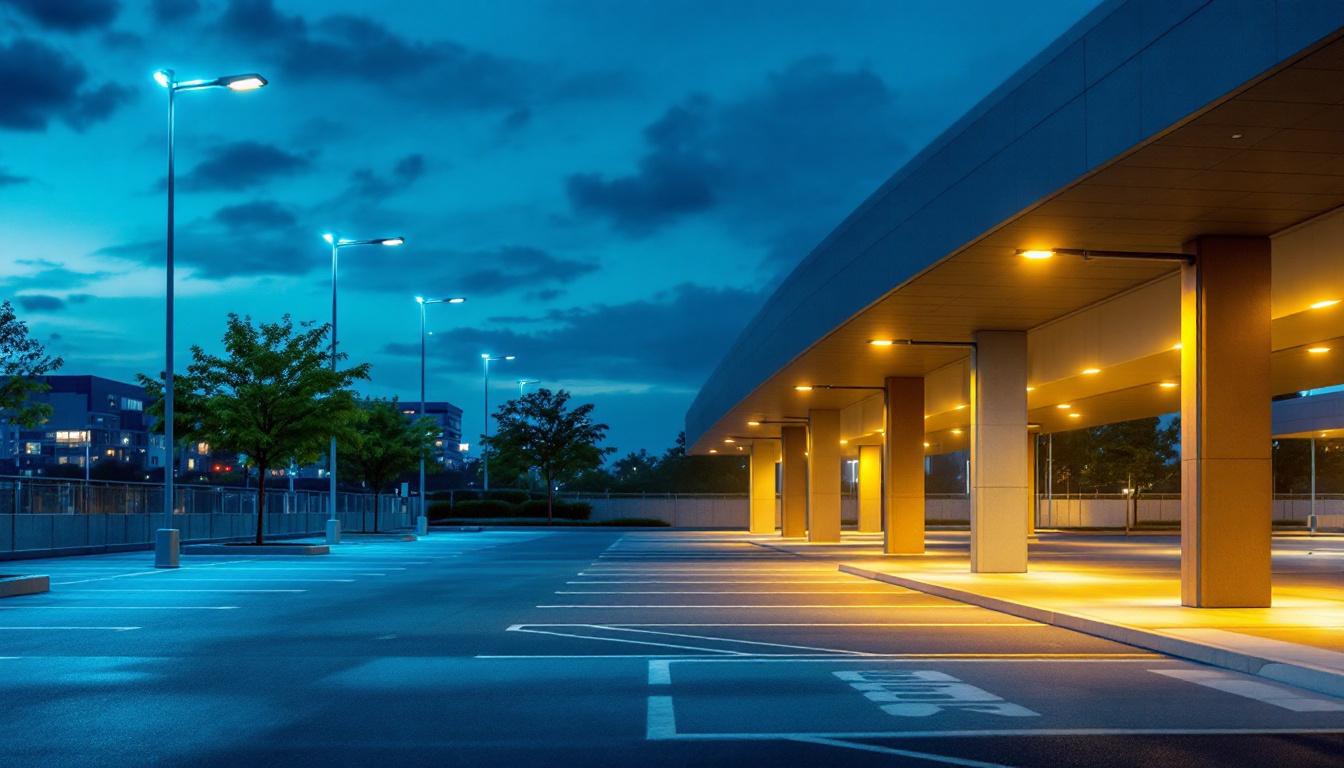
In recent years, outdoor solar lighting has gained significant traction among homeowners and businesses alike. As the demand for energy-efficient solutions increases, lighting contractors are often faced with the decision of whether to recommend solar light bulb replacements. This article delves into the pros and cons of outdoor solar light bulb replacement, providing valuable insights for lighting contractors navigating this evolving market.
One of the most compelling advantages of solar lighting is its ability to harness renewable energy, reducing reliance on traditional power sources and lowering electricity bills. Solar lights operate by converting sunlight into electricity during the day, which is then stored in batteries for nighttime use. This not only promotes sustainability but also makes solar lighting an appealing option for those looking to minimize their carbon footprint. Furthermore, advancements in solar technology have led to improved efficiency and longer-lasting batteries, allowing for brighter and more reliable lighting solutions that can illuminate outdoor spaces effectively.
However, it is essential to consider the limitations that come with solar lighting. Factors such as geographical location, seasonal changes, and weather conditions can significantly impact the performance of solar lights. For instance, areas with prolonged periods of overcast skies may experience reduced charging capabilities, leading to dimmer lights or shorter operational hours. Additionally, the initial investment for high-quality solar lighting systems can be higher than traditional options, which may deter some customers. Lighting contractors must weigh these considerations carefully, ensuring that they provide tailored recommendations based on the specific needs and circumstances of their clients.
Solar light bulbs harness energy from the sun, converting it into electricity through photovoltaic cells. This technology allows for the operation of outdoor lighting without the need for traditional electrical wiring. Understanding the underlying technology is crucial for contractors who wish to offer informed recommendations to their clients. As the demand for sustainable energy solutions increases, solar lighting has emerged as a viable option for both residential and commercial applications, contributing to energy savings and reducing carbon footprints.
Solar lights typically consist of a solar panel, a battery, an LED bulb, and a light sensor. The solar panel collects sunlight during the day, charging the battery. When night falls, the light sensor detects the absence of light and activates the LED bulb. This simple yet effective mechanism allows solar lights to function independently of the electrical grid. Additionally, many modern solar lights are equipped with advanced features such as motion sensors and timers, which enhance their efficiency and security capabilities. These innovations not only prolong battery life but also ensure that lighting is only utilized when necessary, further optimizing energy consumption.
There are various types of solar light bulbs available, including path lights, flood lights, and decorative fixtures. Each type serves a different purpose and can be used in various outdoor settings. Understanding these options enables contractors to tailor their recommendations based on specific client needs. For instance, path lights are ideal for illuminating walkways and driveways, enhancing safety and visibility, while flood lights provide powerful illumination for larger areas, making them perfect for security purposes. Moreover, decorative solar lights can add aesthetic appeal to gardens and patios, creating a warm and inviting ambiance for outdoor gatherings. With the wide array of designs and functionalities, contractors can effectively meet the diverse preferences and requirements of their clients, ensuring satisfaction and optimal use of solar technology.
For lighting contractors, advocating for solar light bulb replacements can offer numerous benefits, both for their business and for clients. Here are some key advantages to consider.
One of the most significant advantages of solar lighting is its energy efficiency. Solar lights utilize renewable energy, reducing reliance on fossil fuels and lowering electricity bills. For clients seeking to minimize their carbon footprint, solar light replacements can be an attractive option. Moreover, solar lights often feature advanced LED technology, which not only enhances brightness but also extends the lifespan of the bulbs, making them a sustainable choice for long-term use. This shift towards energy-efficient lighting aligns with global efforts to combat climate change, further promoting a greener future.
While the initial investment in solar light bulbs may be higher than traditional options, the long-term cost savings can be substantial. Without the need for electrical wiring and reduced energy costs, clients can recoup their investment over time. Additionally, many solar lights come with built-in batteries that require minimal maintenance, further enhancing their cost-effectiveness. Clients can also take advantage of various government incentives and rebates aimed at encouraging the adoption of renewable energy solutions, which can significantly offset the upfront costs. This financial aspect makes solar lighting not only an environmentally friendly choice but also a smart economic decision.
Solar lights are designed for easy installation, often requiring no specialized tools or electrical expertise. This simplicity can be a significant selling point for contractors, allowing them to complete projects quickly and efficiently. Furthermore, the absence of wiring means that installation can occur in remote areas where traditional electrical access is limited. This flexibility opens up new opportunities for contractors to offer solar lighting solutions in parks, gardens, and outdoor spaces that were previously challenging to illuminate. Additionally, many solar lights come equipped with motion sensors and timers, enhancing security and convenience for clients while further simplifying the installation process.
Another compelling advantage of solar light bulb replacements is their versatility. Solar lights are available in a wide range of styles, sizes, and colors, allowing clients to choose options that best fit their outdoor aesthetics. From decorative garden lights to functional pathway illumination, solar lighting can enhance the beauty of any space while providing practical lighting solutions. This variety not only caters to different tastes but also allows for creative installations that can transform ordinary areas into inviting environments. Furthermore, many solar lights are designed to withstand various weather conditions, ensuring durability and longevity, which adds to their appeal for clients looking for reliable outdoor lighting solutions.
Despite the numerous advantages, there are also challenges associated with solar light bulb replacement that contractors should be aware of. Understanding these drawbacks can help in making informed recommendations to clients.
One of the primary limitations of solar lighting is its dependence on sunlight. In regions with limited sunlight or during cloudy days, solar lights may not perform optimally. This can lead to inconsistent lighting, which may not meet the expectations of some clients.
While solar lights can lead to long-term savings, the upfront costs can be a barrier for some clients. High-quality solar bulbs may require a significant initial investment, which can deter budget-conscious homeowners or businesses. Contractors must be prepared to discuss financing options or the long-term benefits to justify the cost.
Not all solar light bulbs are created equal. Some lower-quality products may not withstand harsh weather conditions, leading to premature failure. Contractors should be diligent in recommending reliable brands and products that have a proven track record for durability and performance.
Before recommending solar light bulb replacements, it is essential for lighting contractors to evaluate the specific needs and preferences of their clients. This assessment can guide the decision-making process and ensure that the chosen solution aligns with client expectations.
The location and environment where the solar lights will be installed play a crucial role in their effectiveness. Contractors should consider factors such as the amount of sunlight the area receives, potential obstructions like trees or buildings, and the overall climate. This information can help in selecting the most suitable solar light options.
Every client has unique preferences regarding aesthetics, brightness, and functionality. Engaging in open discussions about these preferences can help contractors recommend products that not only meet practical needs but also align with the client’s vision for their outdoor space.
To ensure successful solar light bulb replacements, contractors should adhere to best practices that enhance the overall experience for clients. These practices can lead to higher satisfaction rates and repeat business.
Education is key when it comes to solar lighting. Contractors should take the time to explain how solar lights work, their benefits, and potential limitations. Providing clients with clear information can help set realistic expectations and foster trust in the contractor’s expertise.
Providing clients with a variety of solar light options can enhance their experience. Contractors should showcase different styles, brightness levels, and functionalities to cater to diverse preferences. This approach not only empowers clients but also demonstrates the contractor’s commitment to meeting their needs.
Proper installation is crucial for the performance of solar lights. Contractors should ensure that solar panels are positioned to receive maximum sunlight and that the lights are placed in optimal locations. Following manufacturer guidelines and best practices during installation can prevent issues down the line.
The solar lighting industry is continuously evolving, with new technologies and trends emerging regularly. Staying informed about these trends can give contractors a competitive edge and enhance their service offerings.
Smart solar lighting is gaining popularity, integrating features such as motion sensors, remote control, and smartphone connectivity. These advancements allow for greater customization and efficiency, making solar lights even more appealing to tech-savvy clients.
Advancements in battery technology are leading to longer-lasting and more efficient solar lights. As batteries become more reliable, the performance of solar lighting systems will improve, addressing one of the primary concerns associated with solar technology.
Innovative designs are emerging in the solar lighting market, catering to aesthetic preferences while maintaining functionality. From decorative garden lights to sleek modern fixtures, these designs can enhance outdoor spaces while providing effective lighting solutions.
Outdoor solar light bulb replacement presents both opportunities and challenges for lighting contractors. By understanding the technology, evaluating client needs, and adhering to best practices, contractors can successfully navigate this growing market. As the industry continues to evolve, staying informed about trends and advancements will be crucial for providing clients with the best possible solutions.
Ultimately, embracing solar lighting can lead to enhanced client satisfaction, increased energy efficiency, and a positive impact on the environment. By weighing the pros and cons and making informed recommendations, lighting contractors can position themselves as leaders in the solar lighting space.
Ready to elevate your lighting solutions with the efficiency and sustainability of solar technology? At LumenWholesale, we provide lighting contractors with the highest quality, spec-grade solar lighting products at unbeatable wholesale prices. Our commitment to cutting out the middleman means you enjoy superior products without the inflated markups, ensuring every project shines with reliability and performance. Embrace the future of lighting with our extensive selection, and take advantage of hassle-free bulk buying with free shipping. Don’t compromise on quality or value — discover wholesale lighting at the best value today and light up your clients’ spaces with confidence and convenience.

Discover how 6-inch recessed LED lights are revolutionizing the lighting industry by enhancing efficiency for contractors.

Discover the latest trends in parking lot light fixtures that every lighting contractor needs to know.

Discover how AC LED technology is revolutionizing the lighting industry by offering cost-effective solutions for contractors.

Explore the pros and cons of traditional overhead lighting versus innovative alternatives in this insightful guide for lighting contractors.